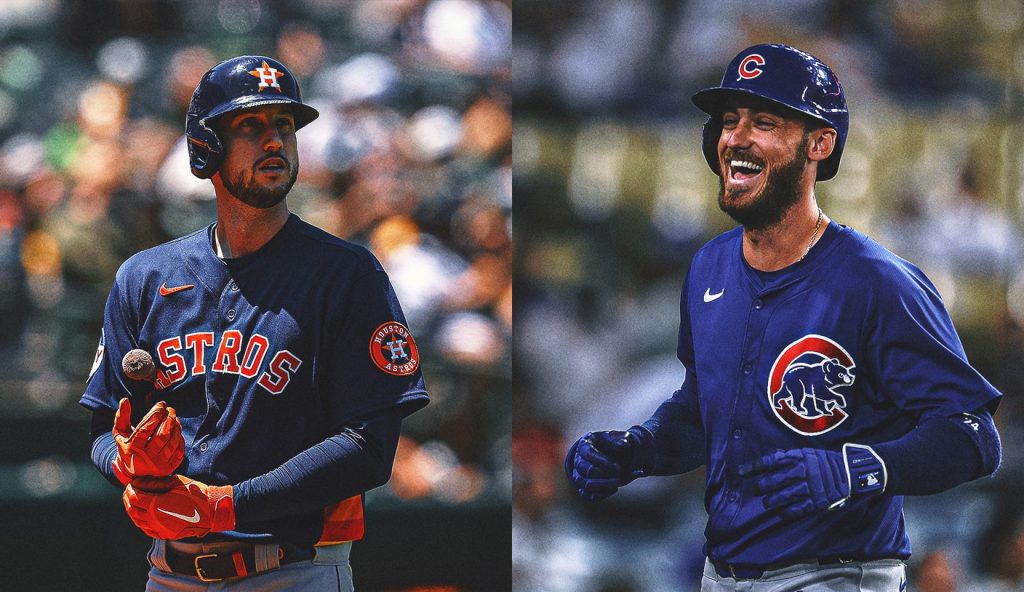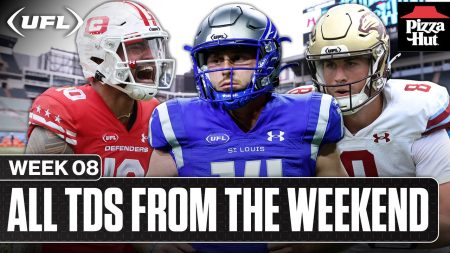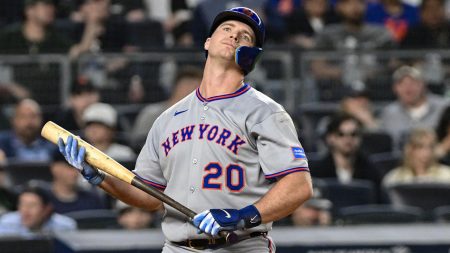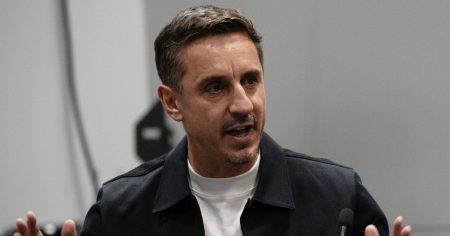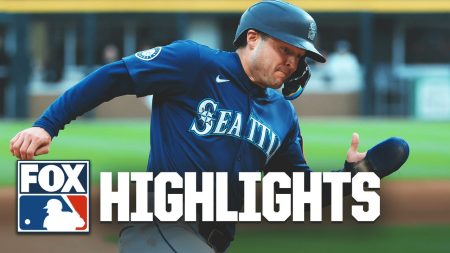Summarize this content to 2000 words in 6 paragraphs The Yankees were interested in trading for Kyle Tucker. They instead landed Cody Bellinger. It came at a much different cost and should yield a different type of return. The Cubs, of course, were involved in both transactions featuring the multi-time All-Stars.That prompted the following debate between our MLB writers: Which trade do you like better: The Yankees’ deal for Cody Bellinger or the Cubs’ swap for Kyle Tucker?Deesha Thosar: There are a few different ways of looking at this, but my answer is Bellinger to the Yankees — particularly because they essentially got him for free. Yankees general manager Brian Cashman sent only 30-year-old right-hander Cody Poteet to Chicago in exchange for Bellinger. The veteran righty has a 3.80 ERA in 24 games (13 starts) across three years in the major leagues between the Marlins and the Yankees, and he’ll simply serve as another depth arm on the Cubs’ pitching staff. Sure, Poteet’s 2.22 ERA in 24.1 innings last year — which included four solid starts while Gerrit Cole began the year on the injured list — was valuable for the Yankees’ rotation.But the trade agreement to part ways with Poteet, versus a top prospect in the Yankees’ farm system, was as easy of a decision for Cashman as whether to wear a coat in New York during the winter.Bellinger’s versatility in the field is a focal point of this trade. Last season, the former MVP award winner appeared defensively at all three outfield positions (49 games in right field, 48 games in center and one game in left) and played a good chunk at first base (22 games). Depending on the flurry of activity in the Yankees’ front office the rest of this offseason, manager Aaron Boone can play Bellinger in center, right or first base to fill whichever roster deficit is left by the time Opening Day rolls around. As of right now, Bellinger makes the most sense at first base or center field, because Aaron Judge can move back to right and Jasson Domínguez can continue to increase his reps in left. But if the Yankees sign either Christian Walker or Teoscar Hernández, for example, Bellinger can take over at the remaining positional hole.So, we know the deal made sense for the Yankees from a roster standpoint, but it was fair from a financial scope, too. New York will pay Bellinger $25 million in 2025, with the Cubs handling the remaining $5 million of his previous pact, and the Yankees will pay him $22.5 million in 2026 if he doesn’t opt out. If he does, the teams will split his $5 million buyout. All of which is to say, the risk here primarily lies in the financials. It seems impossible to predict which version of Bellinger the Yankees will get in 2025, especially after his offensive numbers dipped in 2024. But since Bellinger is only one year removed from his comeback campaign with the Cubs (4.4 fWAR, 136 wRC+ in 2023), the Yankees are betting they can help him get back to that form. If Bellinger hits anywhere close to his All-Star potential, then he’s a steal for the Yankees.Tucker is, of course, a huge get for the Cubs, but since they had to give up three players, including top third base prospect Cam Smith, to the Astros for a one-year rental, the Bellinger trade was a layup for the Yankees and a sensible payroll-shedding move for Chicago that should let it address other areas of need.Rowan Kavner: I like both trades, but I’d favor the Cubs given that they got the better player and the star they desperately needed. Tucker, who buttresses the Cubs’ collection of above-average talents, is very likely going to be the best player not named Juan Soto wearing a different uniform in 2025. Tucker might have been overshadowed by other standouts in Houston, but he slots in right behind Aaron Judge, Soto and Mookie Betts for the most wins above replacement accumulated by an outfielder over the past five seasons.Tucker is also one of just seven big-leaguers who has been worth more than 4.0 WAR each of the past four years, which speaks to his consistency. That he managed to do so again in 2024, despite playing in just 78 games, speaks to his ceiling. At 28 next year, the Cubs are getting one of the best players in the sport still in his prime. His salary, which will likely be somewhere between $15-16 million in his final year of arbitration, should represent a considerable bargain.Of course, getting the better player in question required surrendering more. The Cubs could afford to part with Isaac Paredes to open the path for top prospect Matt Shaw, but losing 2024 first-rounder Cam Smith — who immediately becomes the Astros’ best prospect — was significant. So, if you’re strictly judging these two trades by who came and went, I can understand favoring the Bellinger deal. No disrespect to Cody Poteet, but he was not going to factor significantly into the Yankees’ plans in 2025.The Yankees needed help in the outfield and at first base and an injection of talent into a lineup now missing Soto, and Bellinger checks each of those boxes, even if he didn’t produce to the level of his $27.5 million salary last season (which is why he didn’t opt out). After an unceremonious ending to his L.A. tenure, the 2017 Rookie of the Year and 2019 NL MVP bounced back in his first season in Chicago in 2023 by sacrificing power for contact. He cut his strikeout rate nearly in half while finishing 10th in MVP voting, though he considerably outproduced his expected numbers. In 2024, he came back down to earth. Still, he should help in the Bronx, where his left-handed bat figures to produce more home runs than it did at Wrigley Field. In a barren center field market, the Yankees found a solid player to roam the position without losing any significant pieces.But neither team should be done yet. The Yankees need more offensive help, and the Bellinger addition will look better if they can also add one of the top corner infielders on the market. The Cubs, meanwhile, need to use the money they saved in the Bellinger salary dump to add more pitching. So, we should have a better answer to this question in a couple of months!Deesha Thosar is an MLB reporter for FOX Sports. She previously covered the Mets as a beat reporter for the New York Daily News. The daughter of Indian immigrants, Deesha grew up on Long Island and now lives in Queens. Follow her on Twitter at @DeeshaThosar.Rowan Kavner is an MLB writer for FOX Sports. He previously covered the L.A. Dodgers, LA Clippers and Dallas Cowboys. An LSU grad, Rowan was born in California, grew up in Texas, then moved back to the West Coast in 2014. Follow him on Twitter at @RowanKavner.[Want great stories delivered right to your inbox? Create or log in to your FOX Sports account, follow leagues, teams and players to receive a personalized newsletter daily.] Get more from Major League Baseball Follow your favorites to get information about games, news and more









